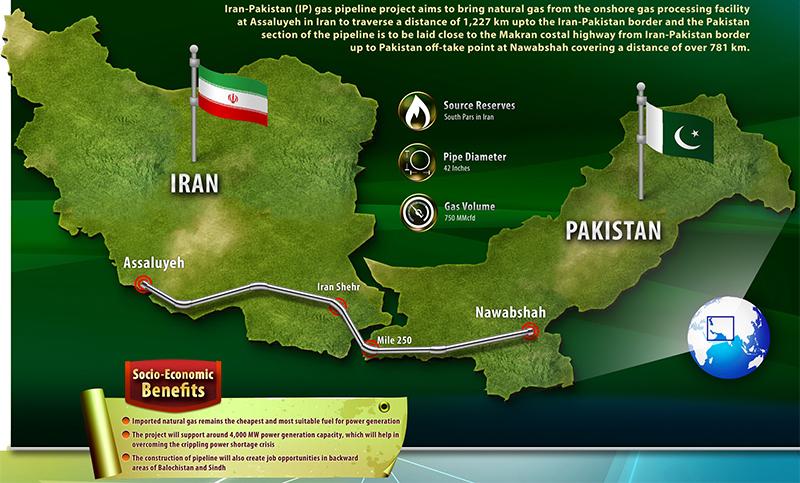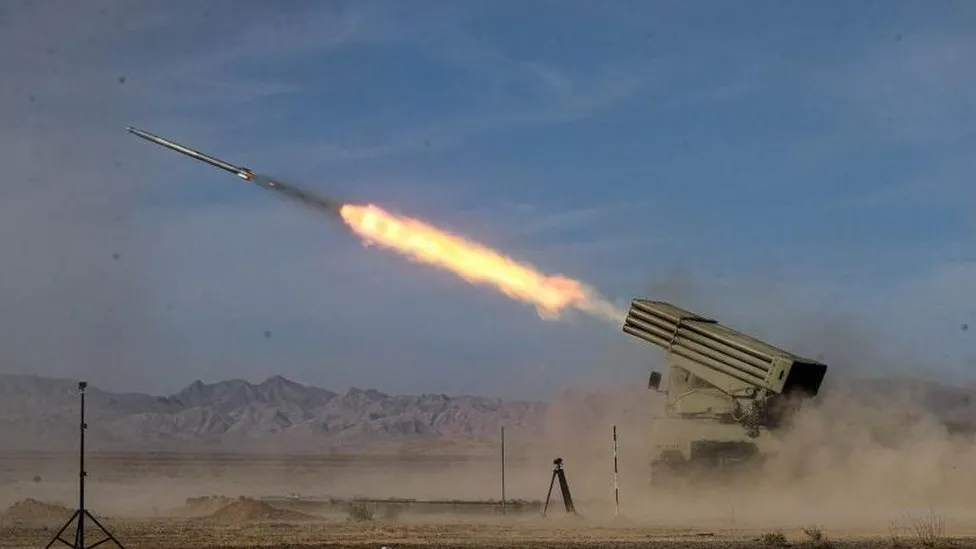Pakistan – Iran gas pipeline project restored. What is next? Calibrated response
On February 21, the Pakistani government agreed to resume work on the 80-kilometer (49-mile) first phase of the Iran-Pakistan gas pipeline project within its borders to avoid a potential $20 billion penalty. The local government’s new decision will allow work to begin from the Iranian border to the strategic port area of Gwadar in southwestern Balochistan province.
According to initial reports, the project will cost approximately $158 million and will be funded by the Gas Infrastructure Development Cess (GIDC). Originally conceived as an India-Pakistan-Iran gas pipeline, the project later transitioned into a bilateral endeavour between Pakistan and Iran after India's withdrawal.
The Iran-Pakistan gas pipeline project began in 2013, and several deadlines have already been missed due to long-standing US sanctions against Tehran in light of the suspended nuclear talks and deteriorated relations between Tehran and the Gulf monarchies.
In August 2019, a third agreement was signed between Iran and Pakistan in Türkiye, which mandated the pipeline project to be completed by 2024 and Pakistan to import Iranian gas produced from the Farzad gas field. Moreover, the agreement also mentioned the possibility of filing the case and claim filed by Iran in a French international litigation court if Pakistan failed to fulfil its commitment.

The construction and full operation of the pipeline is expected to drive economic activity in Balochistan, thereby contributing to Pakistan's overall economic growth. Despite the priorities of both parties, the current regional dynamics, and geopolitical turmoil in the Eurasian continent, the full realization of the pipeline still seems problematic.
Notably, the recent armed escalation between Iran and Pakistan on international border areas worsened the fragile regional security and fueled concerns of a potential spillover of conflict from the Middle East into South Asia. Events in recent months have highlighted Iran’s role as a volatile geopolitical actor through its support for regional proxies like Hamas and the Houthis.
Iran justified its violent attacks on Pakistani territories as "area preventive strike on terrorist strongholds," though by using an essive force. As a result, Pakistani Air Forces intervened in Indian airspace and destroyed several military targets, risking turning it into a full-scale regional war. Nevertheless, both sides quickly found a way for diplomatic negotiations, returning ambassadors, and restoring economic partnership.
In this vein, re-launching the pipeline construction could be an important milestone between Tehran and Islamabad shortly after the violent escalation. The bilateral commitment and energy interests boost the interregional cooperation between both parties, though an energy partnership with Iran may be costly for Pakistan.

The sanctions imposed on Iran prohibit the importation of Iranian gas and the embarking on joint energy infrastructure with some minor exceptions. Countries that attempt to circumvent sanctions may face harsh consequences and fall under separate sanctions. Therefore, Pakistan will apply to seek a waiver of US sanctions for the IP project as the country’s energy minister stated, "All necessary actions are being taken to construct the gas pipeline at the earliest.”
Consequently, until now, Pakistan's applications to get the US waiver for trade with Iran and Russia were largely unsuccessful. Nevertheless, Pakistan has a robust informal trade relationship with Iran, while other regional states attempt to keep a lower profile. For instance, recently, Pakistan restarted negotiations with Russia on the Pakistan Stream Gas Pipeline Project. The USD 2.5 billion project is speculated to ensure affordable gas infrastructure in Pakistan.
Although Pakistan is willing to diversify the local gas market and establish a long-term regional partnership format in its close vicinity, the global security cataclysm and the Russo-Ukraine war is a severe challenge to Islamabad’s foreign policy agenda.
Indeed, Pakistan aims to use its strategic geographic location, which makes it a partner by default in all major regional projects, to exert more influence and get additional dividends. In addition, experts argue that a generous approach by authorities at maximum risk to keep investments flowing has proven to be counterproductive.
In terms of stable relations with Iran and ensuring sustainable consumption, Pakistan will put additional efforts to make the pipeline with Iran fully operational soon. However, stakes are high now, particularly amid Iran’s indirect involvement in confrontation with the US-backed Israel in the Gaza War.








